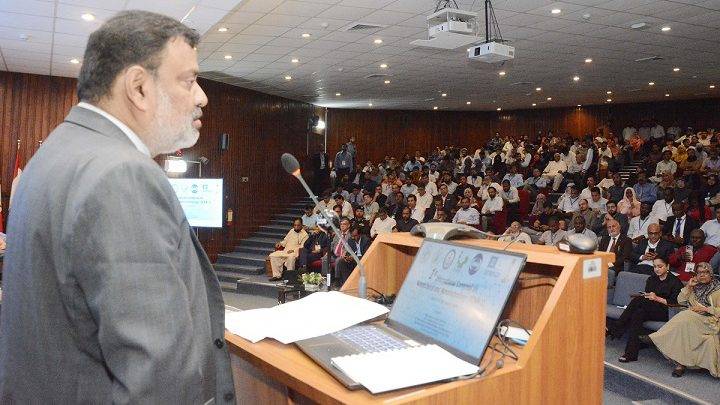Experts and academicians at an international congress in Karachi underscored the transformative role of nanoscience and nanotechnology in addressing pressing global challenges, including environmental concerns, while emphasizing their importance for Pakistan’s sustainable growth and development.
The remarks came during the inaugural session of the three-day 1st International Congress on Nanoscience and Nanotechnology (ICNN-1), which opened on Monday at the Prof Salimuzzaman Siddiqui Auditorium, International Center for Chemical and Biological Sciences (ICCBS), University of Karachi. The hybrid event has drawn over 600 national and international scientists.
Vice Chancellor Prof Dr Khalid Mehmood Iraqi stressed that recent conflicts, including those between Iran and Israel and between Pakistan and India, highlighted how technological superiority often decides outcomes. Citing China’s investment in education, he called for greater focus on human capital development, noting that trained minds are the true wealth of institutions.
Prof Dr Atta-ur-Rahman said the establishment of the National Commission on Nano Science and Technology two decades ago was part of Pakistan’s vision to harness nanotechnology for the future. He praised philanthropist Aziz Latif Jamal for his continued support in developing the Latif Ebrahim Jamal Nanotechnology Center at ICCBS.
Sindh Special Secretary Health Shadia Abdullah described the congress as a vibrant hub for global scientific exchange, while ICCBS Director Prof Dr Muhammad Raza Shah highlighted the institute’s achievements in building a research ecosystem that supports not only ICCBS but also other institutions across the country. Prof Iqbal Choudhary added that nanotechnology is not only a cutting-edge discipline but also a powerful tool for solving pressing issues, particularly environmental challenges.
Other speakers, including Prof Noor Muhammad Butt, Ms Samman Aziz Jamal of the HEJ Foundation, and former Pakistan cricket captain Younus Khan, praised ICCBS’s contributions to advancing science in Pakistan. Younus Khan said he felt honored to stand alongside distinguished scientists, calling ICCBS a “national treasure where science meets purpose.”
Related: ICCBS Marks Independence Day with Call for Scientific Progress
The inaugural session concluded with a vote of thanks by Dr Dilshad Hussain, marking the beginning of three days of discussions on the potential of nanoscience and nanotechnology to shape a sustainable future.



